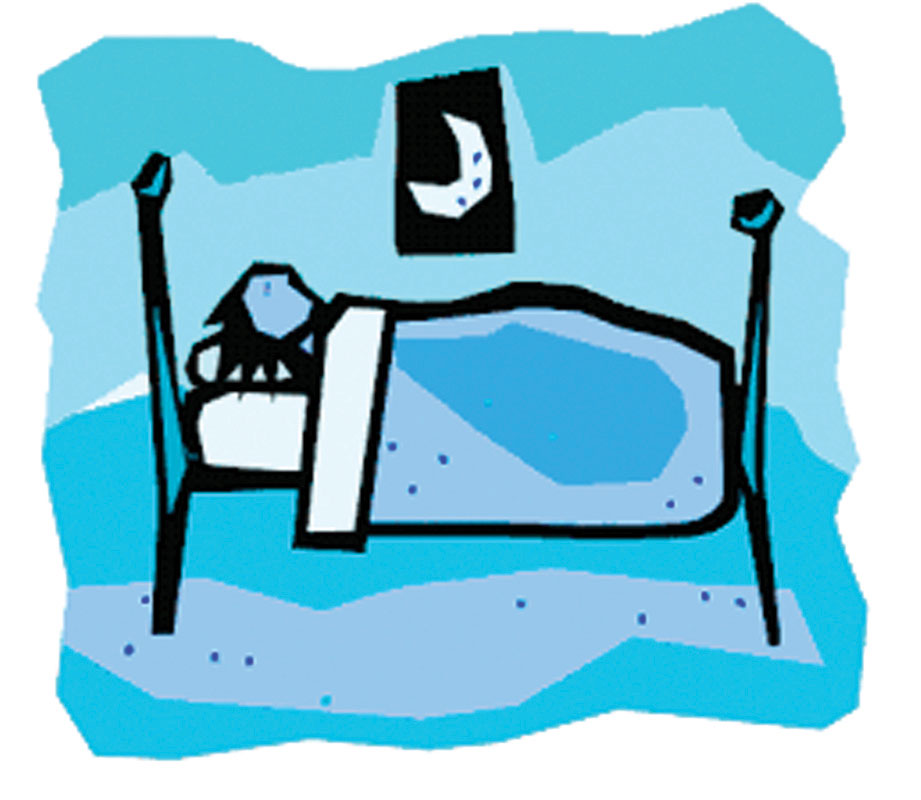VIEWS: 1794
November 17, 2022Why Sleep Is Important If You Have Diabetes
Diabetes Prevention Services provided three online workshops to Salt River Pima-Maricopa Indian Community members and employees in October to provide education on type 2 diabetes. The first two workshops were “Basic Smart Eating for People with Diabetes” and “Stress Less 101.” The last workshop was “Sleep Is Essential,” which focused on the importance of sleep.
“Sleep is central to your well-being,” said Community health educator Karina Watson. “Sleep is an alternate state of consciousness where we have limited interactions with our surroundings and are relatively quiet and still. But while we are quiet in our physical state, our brain is very active during sleep, carrying out many important functions. Sleep is essential to every process in the body and affects our physical and mental function and our ability to fight disease and develop immunity. Sleep is truly interdisciplinary because it touches every aspect of health.”
According to the Sleep Foundation (www.sleepfoundation.org), the majority of healthy adults require at least seven hours of sleep per 24-hour period. The amount of sleep someone needs is largely determined by genetics and age.
How Sleep Affects Your Health
Whether you are worried about something, are talking on the phone or can’t put down a good book, there are many reasons why people occasionally experience sleep deprivation. But when you experience poor sleep most every night, you become susceptible to more health issues.
During the workshop, a video was screened telling the story of a nurse who works the night shift and how that affects her sleep and health. One of the major changes that the nurse experienced working nights was her eating habits. She gained 15 pounds over a couple of years and her hormones were affected by sleep deprivation. In addition, she experienced migraine headaches and disorders of the stomach, muscles and joints.
After adding exercise and changing her schedule so she could get more sleep, the nurse noticed that she had more energy and life was better for her physically, mentally and spiritually.
“People’s performance at work, school and other settings is affected by sleep deprivation. This includes focus, emotional, reactivity, discussion, decision-making, and risk-taking behaviors and judgment,” said Watson. Getting adequate rest each night can regulate blood pressure and lower the risk of heart disease and stroke, and it also has a positive emotional impact, helping people to do well in social interactions, maintaining relationships, feeling positive and preventing depression.
Stages of Sleep
The body goes through four different stages of sleep, cycling through each stage four to six times over the course of one night. The stages are defined as REM (rapid eye movement) or NREM (non-rapid eye movement).
Stage 1 NREM is the lightest stage, in which you transition from wakefulness to sleep. Brain waves, heartbeat, breathing and eye movements slow down, and muscles relax. A person usually spends about 5% of their total sleep time in this stage.
Stage 2 NREM is a deeper sleep. Heart rate slows and muscles relax further, body temperature drops and eye movement stops. Brain wave activity slows, but there are brief bursts of electrical activity. People spend most of their total sleep time in stage 2, which helps consolidate new experiences and memories in the brain.
Stage 3 NREM is the deepest sleep and accounts for about 25% of total sleep time. Heart rate, breathing and brain waves dip to their lowest levels and muscles are completely relaxed. It takes a while to wake up from this stage, and this is when sleepwalking, bed-wetting and night terrors occur. In this stage the body works to repair itself, regrowing tissues, strengthening the immune system, and building bones and muscles. A person needs to spend sufficient time in this stage of sleep to wake up feeling refreshed.
Stage 4 of sleep is REM sleep, the stage when dreams and nightmares mostly occur. It usually begins about 90 minutes after a person falls asleep. The eyes move rapidly from side to side, and heart rate and breathing increase. Brain activity becomes closer to that seen in wakefulness. However, the arms, legs and muscles are paralyzed to stop the person from acting out their dreams. Experts believe that a person needs both REM and non-REM sleep for memory consolidation. People spend around 25% of their total sleep in REM sleep.
Tips for Improving Your Sleep
Creating a healthy sleep and wake routine will make getting enough sleep a little bit easier.
• Avoid caffeine, alcohol or smoking, but if you must, be sure to stop one to two hours before bedtime. Although alcohol may help a person fall asleep, it leads to fragmented sleep and sleep interruptions.
• Create a relaxing environment in your bedroom. Make sure you have a comfortable and supportive mattress and pillow. Keep sheets and pillowcases fresh, washing them at least every two weeks.
• Set up a bedtime routine, a set of activities you perform in the same order every night during the 30 to 60 minutes before you go to bed. Bedtime routines can vary, but often include calming activities like taking a warm bath, reading, journaling or meditation. There are also online sleep meditation and relaxation videos that you can watch or listen to right before bed that help you relax.
• Leave the electronics alone. You may think your favorite show might help you go to sleep, but it can lead to binge watching. Also, scrolling through social media doesn’t help anyone get any sleep.
For more information about Diabetes Prevention Services, visit www.facebook.com/SRPMIC/ or www.facebook.com/SRPMIC.WOLF/.







